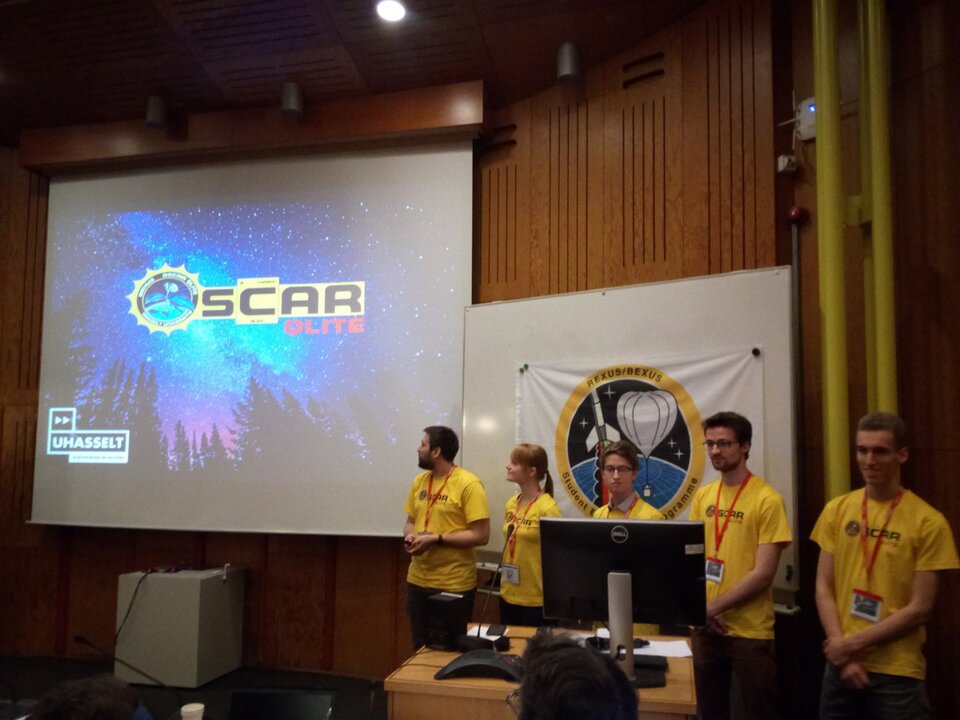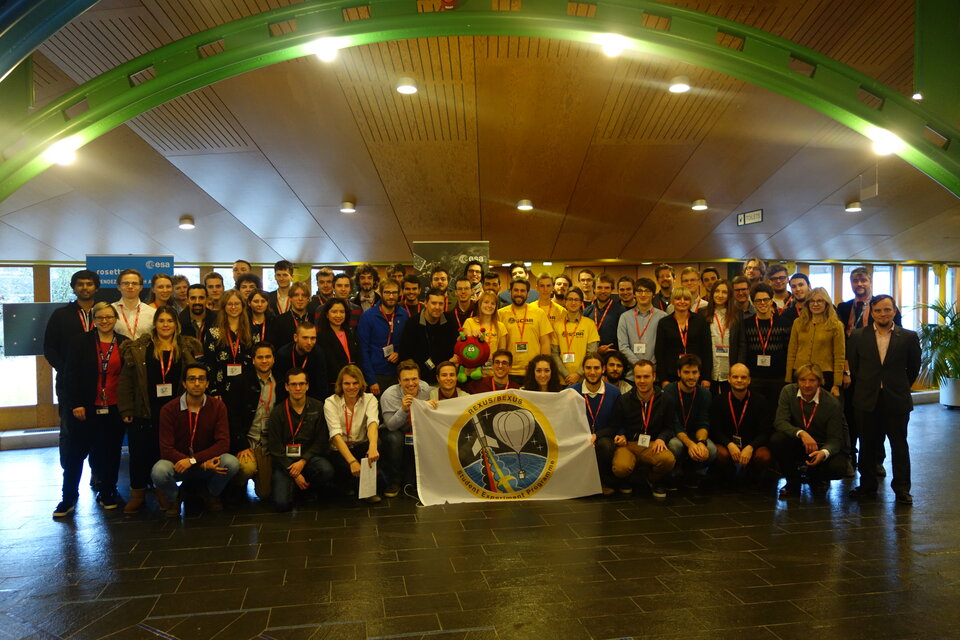Nine new student teams selected to fly experiments on REXUS/BEXUS
Nine teams have taken one step closer to their dream of flying experiments to the edge of space by being selected to participate in the 11th cycle of the Rocket/Balloon Experiments for University Students (REXUS/BEXUS) programme!
Between 28 and 30 November 2017, 12 teams from around Europe travelled to ESTEC, ESA’s engineering and technology hub in the Netherlands. Their purpose? To convince a panel of agency and industry experts that their experiments were suited to the REXUS or BEXUS platform and that they, as a team, had what it takes to make it happen.
The selection workshop saw the attendance of nearly 60 students representing 12 ESA member states, one cooperating state, and two other countries. Before pitching their ideas the participants were first treated to a training afternoon offered by ESA experts with lectures on project planning, requirements definition, and risk management.

Prospective teams were given 20 minutes to present their proposal (a detailed version of what they had already submitted in October), to a panel of experts from ESA, the Swedish National Space Agency (SNSA), SSC, ZARM, and the German Space agency’s (DLR) mobile rocket base (MORABA), before answering questions.
Following an intense few days of presentations, proposals, and networking with fellow students and professionals, the participants were treated to a tour of the ESTEC facilities before travelling back to their universities/institutes.
The teams selected to continue in the REXUS/BEXUS programme’s 11th cycle are:
On the BEXUS stratospheric balloon:
- LODESTAR (high aLtitude experiment On cosmic raDiation inducEd defectS in CIGS solar cells wiTh high precision meAsuRements) from Uppsala University in Sweden.
- LUSTRO (Light and Ultraviolet Strato-and-Tropospheric Radiation Observer) from Warsaw University of Technology in Poland.
- OSCAR-QLITE (Optical Sensors based on CARbon materials: Quantum Lightweight ITEration) from Hasselt University in Belgium.
- TUBULAR (Alternative AirCore Atmospheric Trace Gas Sampling) from Luleå University of Technology in Sweden.
On the REXUS sounding rocket:
- BESPIN (Balloon Ejection Student Prototype Investigation) from Luleå University of Technology in Sweden.
- HEDGEHOG (High-quality Experiment Dedicated to microGravity Exploration, Heat flow and Oscillation measurement from Gdańsk) from Gdańsk University of Technology in Poland.
- PR3 (Payload for Radiation measurement and Radio-interferometry in Rockets) from Eindhoven University of Technology and Radboud University of Nijmegen in the Netherlands.
- PRIME (Plasma measuRements wIth Micro Experiment) from KTH in Sweden.
- TRACZ (Testing Robotic Applications for Catching in Zero-g) from Wrocław University of Science and Technology in Poland.
As the REXUS programme is realised under a bilateral agreement between SNSA and DLR, a concurrent selection workshop was also held at DLR Bonn, where eight German teams were selected:
- GAME (Glider for Atmospheric Measurements and Experiments) from the University of Applied Sciences, Jena
- FORAREX (ForAminifera Rocket Experiment) from the University of Bremen
- FLOMESS (Flight Loading Measurement System) from Universität der Bundeswehr, Munich
- TUPEX-6 (TU Berlin Picosatellite Experiment 6) from TU Berlin
- ELVIS (Exploration of Low-Velocity collisions In Saturn's rings) from TU Braunschweig
- IMUFUSION (Reliable, miniaturised and universal localisation system for aerial vehicles) from University of Applied Sciences, Nordhausen
- QUEST (Quadspectral Unaided Experimental Scanner of Topography) from Julius-Maximilians-University, Wuerzburg.
- WHB (Die Wirkung der Höhenlage auf Bakteriensporen./The effect of altitude on bacterial spores) from FH Aachen
More information about the DLR selection can be found here.
Congratulations to all teams selected! The hard work now begins as the teams begin their preliminary design, ready for review during a dedicated Student Training Week to be held in SSC’s Space Centre (ESRANGE) located in northern Sweden in early February 2018.



